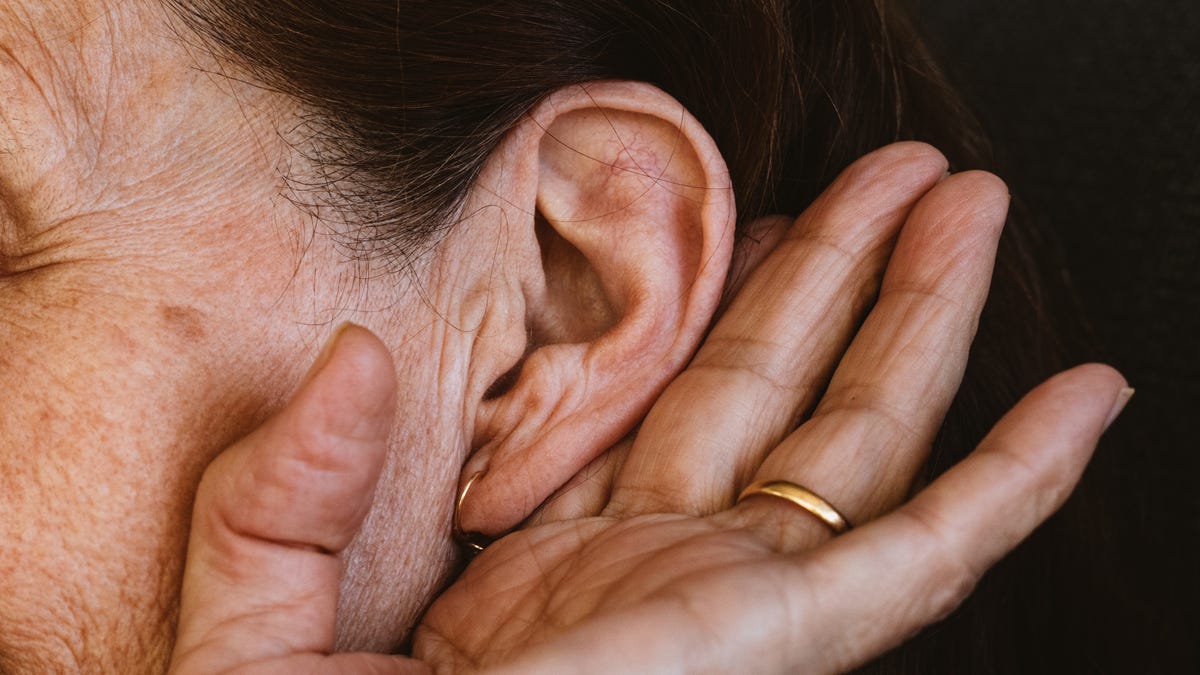 Why You Can Trust CNET
Why You Can Trust CNET Your Genes and Hormones May Play a Role in Hearing Loss, Researchers Say
A large, new study might help pinpoint which people have a higher risk of hearing problems as they age.

By now, we know the biggest factor that increases the risk of hearing problems is growing older. As many as half of adults age 75 and older have some degree of hearing loss, by some estimates. And as our world gets louder, hearing problems are becoming a younger problem too, which begs the need for more research on ways we can cut down our risk.
But the reasons behind other risk factors have been harder to pin down. A new study from May, led by scientists from Yale and published in Genome Medicine, gets deeper into the genetic and hormonal influences of hearing loss, leading to more information that could potentially help patients minimize hearing problems as they age.
Specifically, researchers looked at factors that contribute to sensorineural hearing loss, which is caused by damage to the inner ear and is the most common type as we age. (Other types of hearing loss, including cases where people are born hard of hearing, weren't included in the study.) Across a cohort of nearly 750,000 older adults, scientists were able to identify genes that may make a person more susceptible to hearing loss, as well as hormonal differences that may help explain why men seem to be more prone to hearing loss than women.
Renato Polimanti, associate professor of psychiatry at Yale School of Medicine and senior author in the study, said he hopes this research can help with the development of genetic risk assessments for hearing loss, which will allow doctors and clinicians to combine known environmental risk factors (smoking cigarettes and being exposed to loud noise for long periods of time, for example) with what's in someone's genes.
While more work is needed, combining all of this information, Polimanti said, will help researchers understand which people have a higher risk of developing hearing problems later in life. Then, patients will be in a better spot to make lifestyle tweaks or changes to shift that risk.
"This is something we're working on," Polimanti added.
While there's currently no genetic test for hearing loss, identifying and treating symptoms of sensorineural or acquired hearing loss is important, as problems with hearing also come with the risk of dementia, mental health problems and other health risks.
How hormones and genetics play a role
Men usually have problems with their hearing earlier than women, Polimanti said, even when taking into consideration other factors that make hearing loss more likely. Researchers are now a little closer to understanding why.
Estrogen may play some protective role when it comes to hearing as we age, researchers in the study found. By examining genetic samples from people in Europe and the US, researchers in the study found that genes responsible for hormone regulation were linked to hearing problems in older age. This explains the difference between men and women, who have different hormones throughout their lifespan: on average, women have higher levels of estrogen than men. It also explains the difference among women with genetic predispositions for naturally higher or lower estrogen levels.
"Certain people are predisposed to have higher or lower hormone levels," Polimanti said, explaining that this genetic factor doesn't change even with the expected drop in estrogen that comes when people go through menopause, which also coincides with older age and the rise in hearing problems.
Most studies on hearing loss have been focused on the peripheral auditory system (the inner, outer and middle ear), Polimanti said. But the new research included a potential connection between the central nervous system and changes in the brain with hearing problems, adding to the existing role the peripheral nervous system plays.
Specifically, the study showed that "transcriptomic changes" in the brain can predispose someone to hearing loss, Polimanti said. Changes to the transcriptome may describe genetic changes that happen at a cellular level.
"This opens new directions where changes in the brain due to aging or environmental exposures could increase the risk of hearing problems," Polimanti wrote in an email.
What this means for the future of hearing loss
As a news release from Yale Medicine pointed out, this large-scale genetic study may aid future development of treatments for age-related hearing loss besides hearing aids, which notably were released over-the-counter last fall. But don't expect a pill for hearing loss soon, according to Polimanti, at least based on these findings.
The path from genetic findings to drug development is a "long process," Polimanti said. Besides using hearing aids to compensate, age-related hearing loss is largely considered irreversible, though there is research going into treatments like cochlear implants, which replace the damaged little nerve cells in the inner ear.
Right now, the best thing the medical community and society as a whole can do is help get hearing aids into more ears by stripping away some of the stigma associated with wearing one. This study illustrated that in people with hearing problems, hearing aids are way underutilized not just in the US, but also in the UK, where the cost is covered by the health care system.
This means that we have more work to do public-health wise, besides lowering the cost of hearing aids by making them available over the counter.
"It's important not only to develop new tools, but to make people aware that there is nothing wrong with having hearing problems," Polimanti said. "There are ways they can improve their hearing function."

